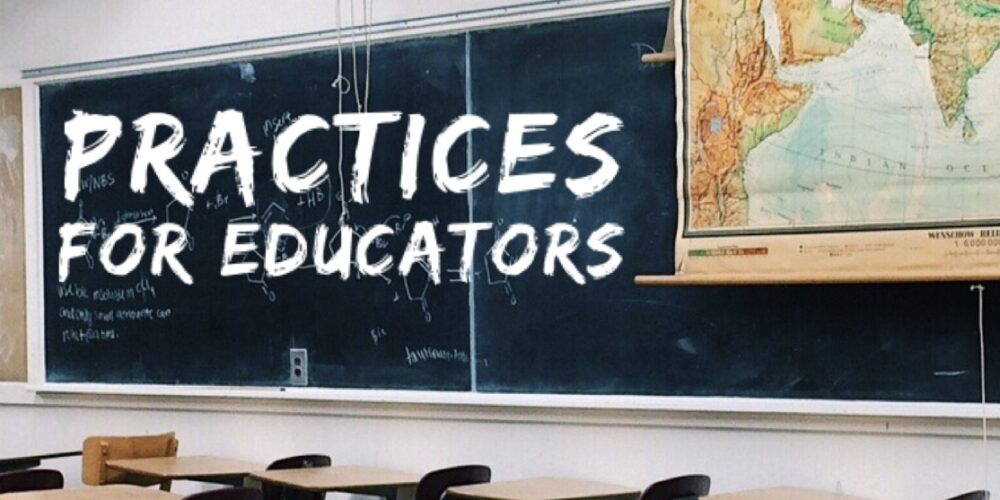Practices for Educators
To state the obvious, education has been one of the great lightning rods of this year. With school closings in Spring, teachers hit the ground running, figuring out solutions for remote learning across ages and stages in real time. As a parent of school-aged kids, a yoga teacher in preschools and elementary schools, and an adjunct professor, I witnessed and experienced this from multiple points of view.
Guess what? It is so hard. All of it is so hard, and by and large, people are doing their best. We need to take care of our teachers holistically to prevent burnout and support sustainability. You want your kids to be happy and successful, and have their needs met? Teachers cannot pour from an empty cup.
That’s why I was overjoyed when the visionary superintendent of a nearby district reached out to me to develop a weekly online offering for teachers. My heart and work have been focused on caregiver support for some time, and teaching these classes is an absolute privilege. Each week I try to integrate practices that will serve these incredible educators, not just during our weekly sessions, but hopefully all of the time. I try to work in techniques and strategies that address tech neck, zoom apnea, and other newfound occupational hazards, alongside somatics, gentle and restorative yoga, and guided relaxation. We work to find stability, maintain mobility, and release tension, all in hopes of developing increased body and breath awareness, making space to move, breathe, relax, and cultivate compassion, self-compassion, and gratitude.
I try to offer simple “to-go” practices that can be done anywhere, by anyone, on their own. Two feet, one breath was developed for healthcare professionals who might not have the time or space to commit for a long meditation practice. It is simple and straightforward.
Feel our feet on the ground.
Be aware through one breath cycle.
Focusing on the breath works because it grounds us in the present, and it is incredibly effective in anxious times. Think about it: anxiety is getting wrapped up in something that already happened in the past, or something that might happen in the future. When we focus on our breath, we are in the present moment.
Much of my teaching is informed by the work of Sharon Salzberg, who wrote the book(s) on compassion. Her teaching focuses on metta meditation (the Sanskrit term is often translated as lovingkindness or compassion). In metta practice there is a repetition of phrases, sharing the same good wishes for ourselves, people we love, those for whom our feelings are neutral, and those with whom we struggle. I love this practice for educators in particular, and when introducing it I invite them to imagine how they would feel if they gave themselves even a fraction of the TLC that they give to their students. We all have the same wants and needs.
May we be safe.
May we be happy.
May we be healthy.
May we feel peace.
Summoning compassion for ourselves can be especially hard work, so we have worked with a few guided exercises drawn from Kristin Neff’s work on self-compassion. We have also explored the G.R.A.C.E. practice, initially developed by Joan Halifax for clinicians, and adapted for teachers by Tish Jennings in Mindfulness for Teachers: Simple Skills for Productivity and Peace in the Classroom. This is a practice for caregivers to act compassionately in stressful times. Helloo, 2020.
Gathering your attention
Recall your intention
Attune to yourself, your body, heart and mind, before you attune to those around you
Consider what will serve your student or colleagues
Enacting and ending
I hope that the phenomenal teachers in my weekly sessions find something beneficial in these practices. If you are reading this post, I invite you to reach out to the educators in your life (whether they are friends, family, or the lucky peeps working with your kids) and let them know that you see them, appreciate them, respect them, and love them. Don’t get me wrong, holiday gifts are fabulous (I hear that gift cards and heartfelt notes are perennial favorites), but we need to take care of our educators all the time, and we need to find ways to support them so that they can continue to show up meaningfully to do their important work.
Tags:caregivers, mindful movement, mindfulness for teachers

